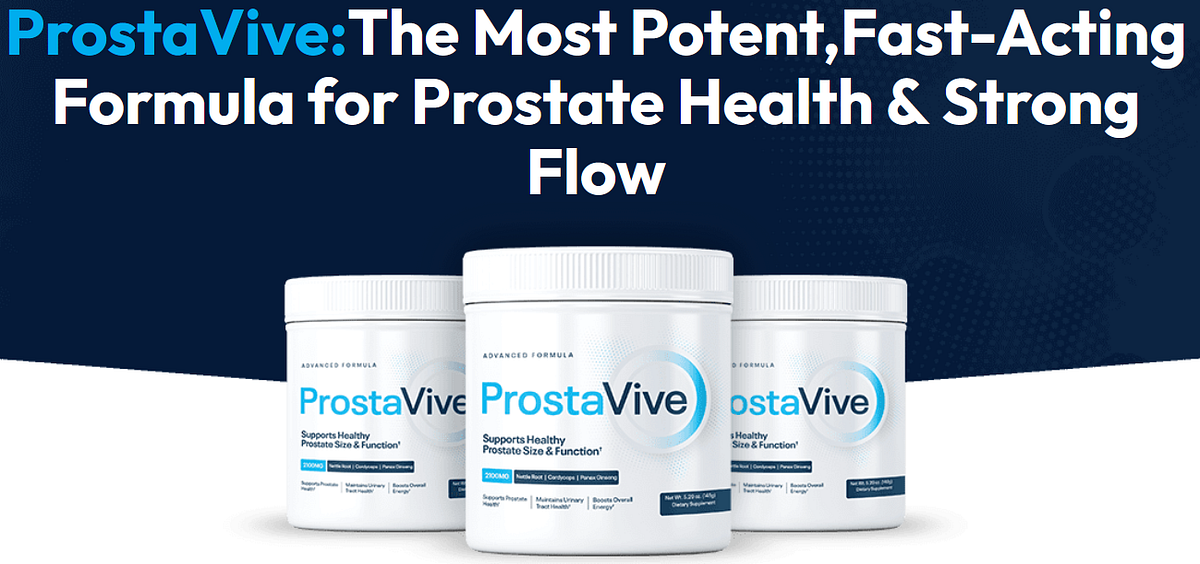Explore Our Powerful Magic Spells
Choose a spell that suits your needs and experience real results today!
Introduction to Microdosing
Microdosing refers to the practice of consuming sub-perceptual doses of psychedelic substances, notably magic mushrooms that contain the active compound psilocybin. Typically, these doses are significantly lower than what would produce noticeable alterations in perception or consciousness, often ranging from 0.1 to 0.3 grams of dried mushrooms. This approach allows individuals to experience potential psychological benefits without the intense hallucinogenic effects associated with higher doses.
Historically, the use of psilocybin mushrooms dates back centuries, with indigenous cultures utilizing them for spiritual and therapeutic purposes. However, the modern microdosing movement gained traction in the early 21st century, coinciding with a broader interest in alternative wellness practices. The recent surge in popularity of microdosing can be attributed to various social and cultural factors, including the rising awareness of mental health issues and the limitations of traditional pharmacological treatments.
Proponents of microdosing suggest that it can enhance various cognitive functions, including creativity, focus, and mood regulation. Many within wellness communities advocate for its use as a means to support mental health, promote self-awareness, and improve overall well-being. Anecdotal evidence from individuals who practice microdosing often cites improvements in their daily productivity, emotional stability, and enhanced problem-solving capabilities. However, despite the growing evidence of its perceived benefits, scientific research remains in the early stages, necessitating a cautious approach to its widespread adoption and acceptance.
As the conversation around microdosing evolves, it is essential to approach this emerging trend with an understanding of its complexities and potential implications for individuals and society at large. Engaging with both the positive aspects and the unanswered questions surrounding microdosing is crucial for a balanced perspective on its role in modern wellness practices.
The Science Behind Microdosing Mushrooms
Microdosing mushrooms, particularly those containing psilocybin, has gained significant attention in recent years due to its potential effects on mental health and cognitive function. Psilocybin, the active compound found in certain types of fungi, is known for its hallucinogenic properties; however, when taken in sub-perceptual doses, it may offer various therapeutic benefits without inducing the full psychedelic experience. Research into the effects of microdosing is still in its infancy, but some preliminary studies and anecdotal evidence suggest improved mood, enhanced creativity, and increased focus as possible outcomes.
Human studies investigating the neurobiological mechanisms underlying psilocybin’s effects indicate that it may promote neurogenesis and induce structural changes in the brain. Specifically, psilocybin interacts with serotonin receptors, particularly the 5-HT2A receptor, which is believed to play a crucial role in mood regulation and cognitive processing. This interaction could lead to enhanced connectivity and communication among different brain regions, potentially resulting in improved mental clarity and emotional balance. Furthermore, some trial participants have reported reductions in anxiety and depressive symptoms after microdosing, suggesting a potential role for psilocybin in certain psychiatric disorders.
However, it is essential to consider the limitations of the current body of research. Much of the existing literature on microdosing has relied on subjective self-reports and lacks the rigor of controlled clinical trials. Variability in dosage, frequency, and individual biochemistry can also complicate the interpretation of results. As the interest in microdosing continues to grow, there is an urgent need for more systematic investigations to establish concrete evidence regarding the safety and efficacy of this practice. Future research should aim to address these gaps, paving the way for a clearer understanding of microdosing mushrooms and its implications for mental health.
Potential Benefits of Microdosing Mushrooms
Microdosing mushrooms, particularly those containing psilocybin, has gained considerable attention as a potential wellness trend. Proponents of microdosing claim a variety of benefits, ranging from enhanced creativity to improved emotional resilience. Users often report experiencing an increase in creativity, suggesting that a small, sub-hallucinogenic dose helps to unlock new perspectives, fostering innovative thinking. For many, this has translated into greater productivity, allowing them to approach tasks with renewed focus and energy.
Interestingly, anecdotal evidence supports these claims as users share their personal experiences following microdosing regimens. Individuals have indicated that the practice has facilitated a marked shift in their ability to concentrate; tasks that previously felt daunting became more manageable. They describe enhanced clarity of thought, which aids in problem-solving and brainstorming sessions, leading to a fruitful engagement with their work and personal projects.
In addition to cognitive benefits, microdosers frequently cite relief from emotional disturbances such as anxiety and depression. Preliminary studies have suggested that psilocybin may promote neurogenesis and help alleviate symptoms associated with mood disorders. Users report experiencing a softer emotional landscape, characterized by reduced stress and a greater sense of well-being. Many have experienced improvements in emotional resilience, which allows them to cope more effectively with life’s challenges and stresses.
❤️ Powerful Real Love Spells That Work
Attract true love, reunite with your partner, and strengthen relationships with proven magic spells.
As a result, microdosing with mushrooms has attracted diverse groups of individuals, from professionals in high-pressure jobs to artists seeking inspiration. These personal anecdotes reveal a growing movement toward self-exploration and well-being. However, while many users advocate for the benefits, the scientific community continues to explore the long-term implications and efficacy of such practices.
Risks and Dangers of Microdosing
Microdosing mushrooms, a practice involving the consumption of sub-perceptual amounts of psilocybin, is often touted for its potential cognitive and emotional benefits. However, it is essential to consider the associated risks and dangers that may arise from this unconventional approach. One primary concern is the psychological effects that may accompany microdosing. While some individuals report enhanced creativity and mood, others have experienced increased anxiety and paranoia. The variance in individual responses can be significant, and not everyone may respond positively to the compounds present in mushrooms.
Moreover, the potential for dependency is another factor that warrants close examination. While the dosages used in microdosing are intended to be low, repeated exposure to psilocybin can lead to psychological reliance. Individuals who microdose frequently might find themselves relying on the substance to manage daily tasks or emotional states, potentially hindering their ability to cope without its influence. This situation raises questions about the long-term health implications of using substances like psilocybin, even in small amounts.
Additionally, legal issues surrounding psilocybin cannot be overlooked. In many countries and jurisdictions, possession and use of mushrooms containing this psychoactive compound remains illegal, creating potential legal ramifications for users. Engaging in microdosing may expose individuals to law enforcement actions, thereby complicating their wellness journey. Lastly, the lack of standardized dosing poses a significant risk; different strains of mushrooms can have varying levels of psilocybin, making it difficult for users to assess their intake accurately. With no universally accepted guidelines, individuals may inadvertently consume higher doses than intended, increasing the likelihood of adverse effects.
Legal Status and Accessibility
The legal status of psilocybin, the active compound found in certain mushrooms, varies significantly around the world and has a notable impact on the accessibility of microdosing practices. In many countries, psilocybin remains classified as a Schedule I substance, indicating that it is perceived to have a high potential for abuse and no accepted medical use. This classification is particularly evident in the United States, where both federal and many state laws continue to prohibit the possession, sale, and use of psilocybin mushrooms without specific exemptions in certain jurisdictions. For example, Denver, Colorado, and several municipalities in Oregon have decriminalized psilocybin, allowing individuals to possess and use it without facing prosecution. These developments signal a shift in public attitudes towards the potential therapeutic benefits of microdosing.
Internationally, countries like Canada and the Netherlands have also shown progressive steps towards relaxing restrictions. Canada has permitted the use of psilocybin for therapeutic purposes, primarily within clinical settings, while the Netherlands allows the sale of “magic truffles,” which contain psilocybin, in regulated smart shops. In contrast, many Asian and Middle Eastern countries maintain stringent anti-drug laws, resulting in severe penalties for possession and use of psilocybin mushrooms.
The changing legal landscape indicates a growing interest in the potential health benefits associated with microdosing, with various organizations advocating for research into its effects. As the push for broader acceptance continues, legislative reforms are likely to evolve, potentially increasing the accessibility of microdosing in regions where it is currently restricted. Such changes may lead to a greater understanding of psychotropic substances and their implications for mental health, paving the way for an enhanced dialogue on wellness practices, including microdosing of mushrooms.
Microdosing vs. Therapeutic Use of Psilocybin
Psilocybin, the active compound found in certain mushrooms, has gained recognition for its potential therapeutic benefits. In recent years, the distinction between microdosing and therapeutic use has become increasingly apparent, as researchers and practitioners examine the varying applications of this psychedelic substance. While microdosing refers to the practice of consuming low doses of psilocybin, typically one-tenth to one-twentieth of a psychedelic dose, therapeutic use involves administering a significantly higher, carefully controlled dosage in clinical settings.
One of the primary differences between the two practices lies in their intent and outcomes. Microdosing is often approached as a means to enhance creativity, improve emotional well-being, and increase productivity. Proponents of microdosing argue that it can provide subtle yet noticeable benefits without inducing the intense experiences typically associated with full psychedelic doses. In contrast, the therapeutic use of psilocybin focuses on treating specific mental health conditions, such as depression, anxiety, and PTSD. Clinical studies have demonstrated that properly administered therapeutic doses of psilocybin, coupled with psychological support, are effective in producing significant improvements in mental health outcomes.
Moreover, the administration of therapeutic psilocybin is typically conducted within a monitored clinical environment. Patients are medically screened to ensure they are appropriate candidates for treatment, and their progress is closely observed throughout the process. This is in stark contrast to microdosing, where individuals often self-medicate outside of medical supervision, leading to greater variability in both the dosage and the effect.
🛡 Powerful Protection Spells That Shield From Harm
Safeguard yourself, loved ones, and your home from negative energy and spiritual threats with effective, trusted protection spells.
Research to date has robustly supported the therapeutic potential of psilocybin, while studies into microdosing remain less conclusive. Many researchers express skepticism about the claimed benefits of microdosing, highlighting a lack of empirical evidence that can substantiate these assertions. Consequently, as the landscape of psilocybin treatments continues to evolve, understanding the critical differences between microdosing and therapeutic use is vital for informed decisions regarding its application.
User Experiences and Testimonials
Microdosing mushrooms has gained significant attention in recent years, with many individuals sharing their personal experiences. These testimonials often present varying outcomes, highlighting the nuanced effects that microdosing can have on mental and emotional well-being. For some users, the practice has led to profound personal transformation. One individual recounted that after incorporating microdosing into their routine, they experienced an increase in creativity and heightened awareness. They reported feeling more engaged with their surroundings, which allowed them to approach problems in new, innovative ways.
Moreover, anecdotes suggest that microdosing may help mitigate symptoms associated with anxiety and depression. A young professional noted that their daily doses of psilocybin significantly alleviated feelings of stress and provided clarity in decision-making. They expressed a newfound sense of calmness, which enabled them to face challenges at work and in personal relationships more effectively. These positive testimonials contribute to the narrative surrounding microdosing as a potential tool for enhancing overall mental health.
However, not all experiences have been favorable. Some individuals report adverse reactions, leading to caution among those considering this practice. For instance, a user shared a disheartening account of feeling overwhelmed and anxious after microdosing, contrary to their intentions. They experienced heightened paranoia, which exacerbated existing mental health issues and ultimately deterred them from continuing the practice. Such accounts serve as important reminders that microdosing’s effects can be unpredictable and vary greatly among individuals.
The variety of experiences underscores a critical message: while microdosing mushrooms may offer significant benefits to some, it is not without risks. Each person’s body chemistry and mental state can influence how they respond to this wellness trend. Thus, potential users should approach microdosing with both curiosity and caution, carefully considering their motivations and possible outcomes.
Expert Opinions and Current Debates
Microdosing mushrooms, particularly those containing psilocybin, has garnered attention from diverse experts across psychology, medicine, and pharmacology. Psychologists argue that microdosing may have therapeutic benefits for mental health conditions such as depression, anxiety, and PTSD. Some researchers suggest that small, controlled doses could potentially enhance mood, creativity, and cognitive function, challenging conventional approaches to mental health treatment. Advocates point to anecdotal evidence from users who report notable improvements in their daily lives, suggesting that microdosing could represent a paradigm shift in holistic wellness practices.
On the flip side, many health practitioners express caution regarding the practice. Opponents highlight that while the benefits of microdosing are largely anecdotal, definitive scientific research and controlled clinical trials are still scarce. Critics warn that using psychedelics without professional supervision could lead to unpredictable psychological effects. The debate centers around whether the perceived enhancement of mental well-being is worth the potential risks, which could include adverse reactions and dependency issues. These concerns prompt a discourse on the ethical implications of promoting microdosing as a legitimate wellness trend without rigorous scientific backing.
Furthermore, there is a significant divide among researchers regarding the classification of microdosing. While some argue for its recognition as a therapeutic approach with potential to aid in psychological conditions, others maintain that it is a form of recreational drug use that could inadvertently glamorize substance consumption. The argument is further exacerbated by societal attitudes towards psychedelics, which historically carry stigma yet show promise for legitimate medical applications. This ongoing debate necessitates further empirical studies to ascertain safety, efficacy, and long-term outcomes, contributing to the dialogue on whether microdosing is a viable path to wellness or a health risk that merits caution.
Conclusion: The Future of Microdosing
As we reflect on the multifaceted discussions surrounding microdosing, it becomes evident that this practice is straddling the line between a promising wellness trend and a potential health risk. The anecdotal evidence supporting microdosing mushrooms suggests that enthusiasts may experience enhanced creativity, improved focus, and reduced anxiety. However, it is critical to recognize that the scientific community is still in the nascent stages of exploring its benefits and potential drawbacks.
Emerging research is beginning to unpack the complexities of microdosing. While preliminary studies have shown favorable outcomes in specific populations, the lack of large-scale, controlled trials means that we must approach the subject with caution. Furthermore, societal and legal attitudes towards psychedelics are gradually evolving, with some regions examining the decriminalization of these substances for therapeutic uses. This shift could pave the way for more rigorous scientific studies and a better understanding of microdosing’s long-term effects.
Given these developments, the future of microdosing remains uncertain yet intriguing. Individuals considering this practice must weigh the potential benefits against the lack of comprehensive research and regulatory oversight. It is essential to remain informed and make decisions based on the most current and credible information available. Additionally, advocating for further studies into the efficacy and safety of microdosing should remain a priority for both the scientific community and the general public. This commitment to inquiry will not only enrich our understanding of psychedelics but may also help delineate the fine line between a novel wellness trend and a lurking health risk.








